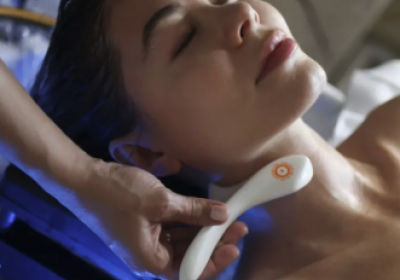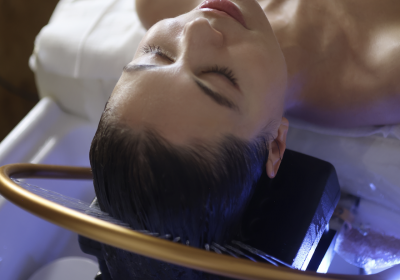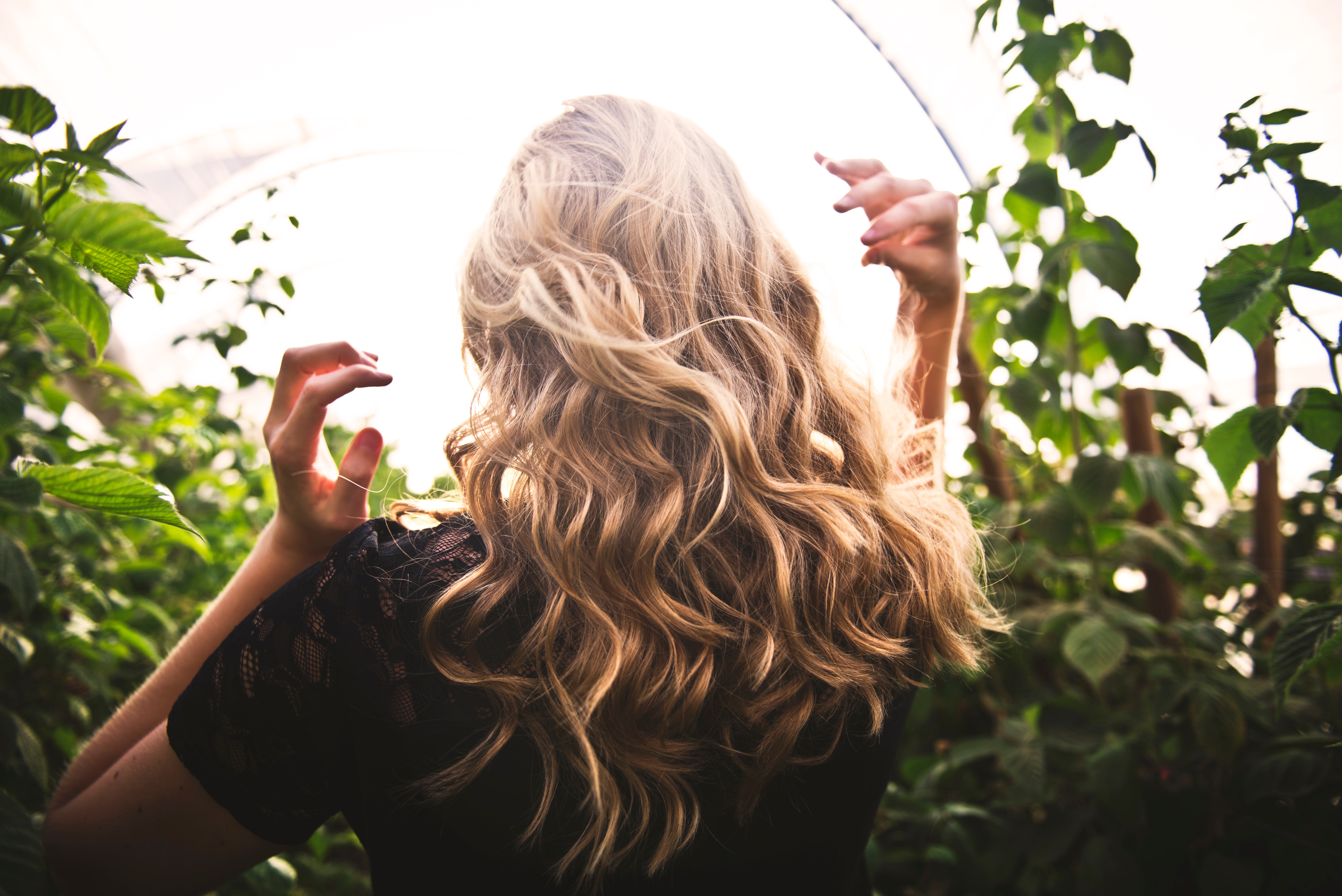
Hair loss can be such a frustrating and distressing condition for any woman and affects almost 8 million women in the UK alone. Many suffer in silence but recently there has been many celebrities including, Jada Pinkett Smith, Olivia Bentley, Zara Lena Jackson and Gail Porter who have openly discussed their alopecia diagnosis and documented it across social media. This has helped many women in the same position come forward to get treated as well as drawing further awareness so we can have more open and honest discussions on the causes and treatments of hair loss.
Hair loss can be caused by a variety of factors, including genetics, medical conditions, medications, nutritional deficiencies, lifestyle factors such as stress and hairstyling practices and it can be hard to determine exactly what is the root cause. Some hair loss is completely normal and can be expected as part of our natural aging process, however significant hair loss or hair thinning can be upsetting and could also indicate an underlying medical condition which should be addressed.
While there are several medical treatments available for hair loss, many people prefer to explore natural remedies and treatments before turning to medications or invasive procedures. The power of plants is truly amazing and have been used since the ancient times for hair loss. Plants absorb vital nutrients from the soil in order to survive and thrive and this is what they do to our bodies. Their phytochemicals are recognised by our body as food, which makes them easily absorbed and therefore effective with low risk of side effects.
As always, in naturopathy we need to look at the cause holistically to be able to treat appropriately case by case and get the best long-lasting result. This is always the focus of my herbal preparations. Below are some of the herbs that I often consider when treating hair loss. This list is by no means exhaustive but will give you an idea of what plants can do to give you strong, shiny and lush hair.
I would like to start with my top 5 herbs that are the main ingredients of the Hair Tea that I created for internal and topical use. I would recommend it to almost anyone who would want to improve the quality of their hair. What’s more, that many of these herbs can easily be grown in your garden or on a windowsill or found in forests and parks right under your feet, patiently waiting to support your health and beauty.
Horsetail is a genius skin and hair herb, which has the highest silica content amongst plants. Silica helps to strengthen the hair shaft and improve its elasticity, which can help prevent breakage and promote healthy growth. Silica is also important for the formation of collagen, which is a protein that provides structure to the hair, skin and nails. Additionally, collagen plays a role in the growth and repair of hair follicles. Horsetail also contains abundant antioxidants such as phenolic acids, flavonoids, vitamins C and E, reducing damage from free radicals to healthy cells. In other areas of herbal medicine, Horsetail is used to support regeneration of bones, cartilage, and other connective tissue to increase its strength and elasticity. It also strengthens teeth and brittle nails, hence its reputation of one of the top beaty herbs.
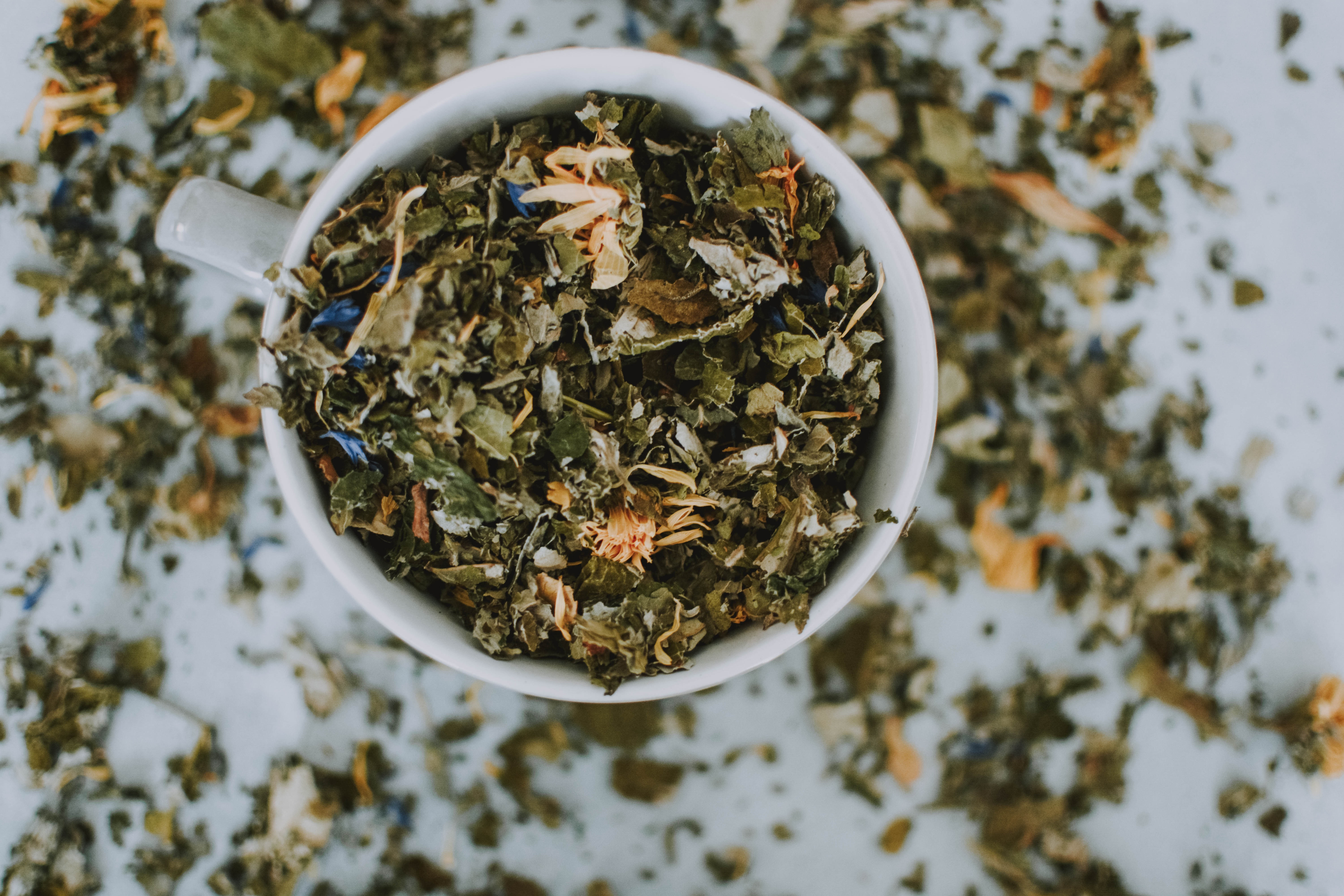
Nettle is another herbs rich in vitamins, minerals, essential amino acids, polyphenols and other antioxidants essential for hair growth. It’s one of the most nutritionally dense plants, containing vitamins A, Bs, C, D, E, F, K, P, beta-carotene, lycopene, ALA, chlorophyll, calcium, selenium, zinc, magnesium, boron, sodium, acetylcholine, iodine, chromium, copper, sulphur and most importantly iron. As a result, regular intake of nettle leaf may benefit hair in various ways from stimulating growth, improving hair strength and shine to supporting scalp health, by reducing inflammation, eliminating dandruff and promoting blood flow and circulation. Additionally, nettle root also contains compounds that may help to balance the levels of hormones and enzymes in the scalp. For example, nettle has been shown to inhibit the production of the enzyme 5-alpha-reductase, which converts testosterone into DHT, a hormone associated with androgenic alopecia. When DHT is formed, it attaches itself to the hair follicles on the top of the head, causing them to continually shrink with every growth cycle. This causes gradually thinning hair which becomes increasingly weaker until the follicles finally become dysfunctional and the hair no longer grows. Finasteride drug that is currently available on the market that inhibit 5-alpha-reductase, has serious side effects, such as erectile dysfunction in men, and loss of libido in women, therefore a natural option should always be considered first.
Another circulatory stimulant, which has been praised for its benefits for hair is Rosemary. For hundreds of years Mediterranean cultures used of rosemary in hair rinses to promote hair growth. In herbal medicine Rosemary’s uses range from antioxidant and anti-microbial benefits to memory and focus enhancement.
Its active ingredients – rosmarinic and carnosic acid inhibit the production of the enzyme 5-alpha-reductase, similar to nettle. Additionally, in one study, Rosemary oil demonstrated similar efficacy to Minoxidil, a pharmaceutical drug that improves the flow of blood to the affected areas in alopecias, increasing the supply of oxygen and nutrients to the hair. Another study found that an extract of rosemary stimulated the proliferation of human dermal papilla cells. They are responsible for controlling the growth and cycling of hair follicles, as well as regulating the formation of new hair follicles. Dermal papilla cells are essential for hair growth, as they provide important signals and nutrients to the surrounding hair cells. They also play a key role in hair pigmentation and the development of hair shaft morphology.
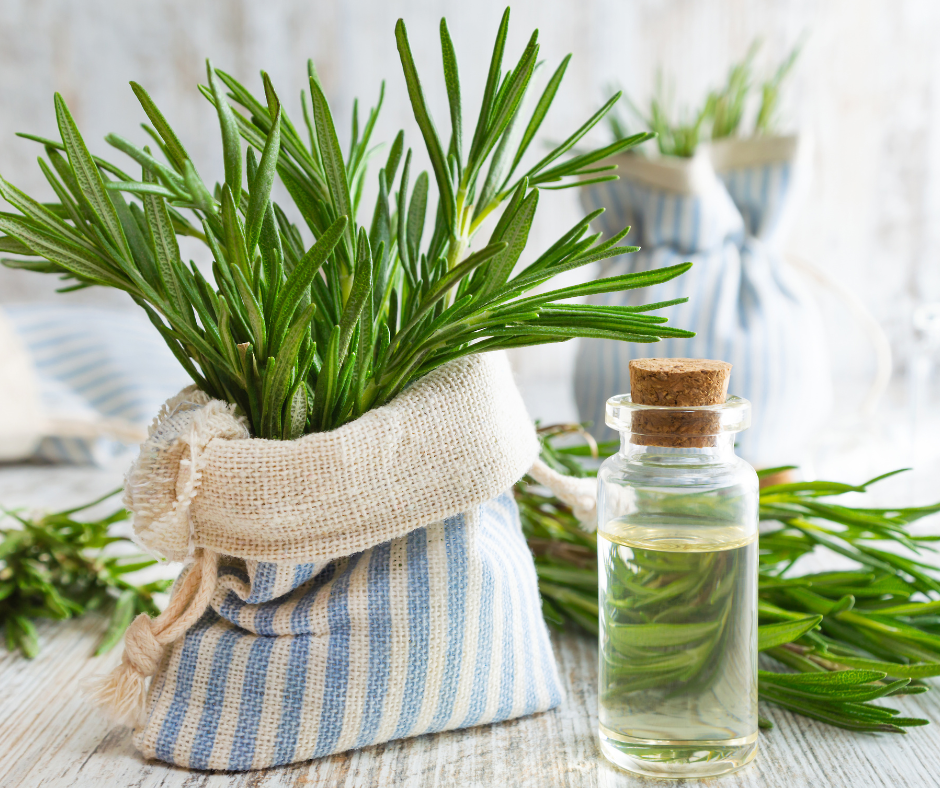
Gotu Kola is my personal favourite beauty herb, which is referred to in Asia as a ‘miracle elixir of life’ due to its anti-ageing, rejuvenating and memory-enhancing effects on our body. Gotu Kola stimulates collagen and fibroblasts production. By increasing collagen content of skin and hair, Gotu Kola promotes tissue repair, elasticity and skin hydration. Topically essential oil Gotu Kola was found effective at preventing infection, healing wounds and reducing the appearance of stretch marks and scars. Additionally, Gotu Kola demonstrated ability to activate the hair-inductive capacity in dermal papilla cells and it is also high in quercetin, a flavonoid, which exhibited an inhibitory effect on 5-alpha-reductase enzyme implicated in hair loss.
With its refreshing taste and stimulating action Peppermint is traditionally used as a digestive, anti-spasmodic and circulatory stimulant. Indeed, similar to Rosemary, studies that compared Peppermint to the drug Minoxidil, found that Peppermint remarkably promoted hair growth and resulted in increase in depth, size and number of hair follicles, enhanced blood flow and faster induction of the growth phase of hair cycle comparable to its pharmaceutical counterpart.
I have blended these five herbs to create a Hair Tea which can be taken internally or used as a hair rinse. Hair tea may promote hair growth, strength and shine, without harmful side effects of pharmaceutical medications.
Additionally, I use roots of Panax Ginseng, He Shou Wu, Saw Palmetto, Liquorice, White Peony, Vitex to name a few to correct hormonal imbalances and other causes of hair loss. And of course, diet, lifestyle, stress reduction, sleep, rest and other lifestyle factors need to be incorporated into the treatment plan to achieve long lasting results. There will be more information on these in my future blogs.
To conclude this blog, I am thrilled to announce that, at Cloud Twelve, we have launched our most comprehensive and revolutionary programme for combatting hair loss with the assistance of natural remedies, diet and supplements, high-tech aesthetics treatments and holistic hair care.
HAIR LOSS TREATMENT PROGRAMME

Jenya Di Pierro
Founder, Naturopath & Herbal Medicine Practitioner BSc, MSc, DipCNM, AMH, ANP
Works Cited
Dragana D Cetojević-Simin 1, Jasna M Canadanović-Brunet, Gordana M Bogdanović, S. (2010). Antioxidative and antiproliferative activities of different horsetail (Equisetum arvense L.) extracts. Journal of medicinal food. 13(2), pp.452-9. [Online]. Available at: https://pubmed.ncbi.nlm.nih.gov/20170379/ [Accessed 8 May 2023].
Kregiel D, Pawlikowska E, Antolak H. (2018). Ordinary Plants with Extraordinary Properties. Molecules (Basel, Switzerland). 23(7), p.1664. [Online]. Available at: https://www.ncbi.nlm.nih.gov/pmc/articles/PMC61005... [Accessed 8 May 2023].
Erkin Pekmezci, Cihat Dundar, Murat Turkoglu. (2018). Proprietary Herbal Extract Downregulates the Gene Expression of IL-1α in HaCaT Cells: Possible Implications Against Non. Medical archives (Sarajevo, Bosnia and Herzegovina). 72(2), pp.136-40. [Online]. Available at: https://www.ncbi.nlm.nih.gov/pmc/articles/PMC61269... [Accessed 8 May 2023]
Ana Zgonc Škulj , Nina Poljšak , Nina Kočevar Glavač , Samo Kreft. (2020). Herbal preparations for the treatment of hair loss. Archives of dermatological research. 312(6), pp.395-406. [Online]. Available at: https://pubmed.ncbi.nlm.nih.gov/31680216/# [Accessed 8 May 2023]
Eleonora Bassino, Franco Gasparri,and Luca Munaron. (2020). Protective Role of Nutritional Plants Containing Flavonoids in Hair Follicle Disruption: A Review. International journal of molecular sciences. 21(2), p.523. [Online]. Available at: https://www.ncbi.nlm.nih.gov/pmc/articles/PMC70139... [Accessed 8 May 2023].
Panahi Y, Taghizadeh M, Marzony ET, Sahebkar A. (2015). Rosemary oil vs minoxidil 2% for the treatment of androgenetic alopecia: a randomized comparative trial.. Skinmed. 13(1), pp.15-21. [Online]. Available at: https://europepmc.org/article/med/25842469 [Accessed 8 May 2023].
Kazuya Murata, Kazuma Noguchi, Masato Kondo, Mariko Onishi, Naoko Watanabe, Ka. (2013). Promotion of hair growth by Rosmarinus officinalis leaf extract. Phytotherapy research. 27(2), pp.212-7. [Online]. Available at: https://pubmed.ncbi.nlm.nih.gov/22517595/ [Accessed 8 May 2023].
Sanusi Umar, Marissa J Carter. (2021). A Multimodal Hair-Loss Treatment Strategy Using a New Topical Phytoactive Formulation: A Report of Five Cases. Case reports in dermatological medicine. (6659943). [Online]. Available at: https://pubmed.ncbi.nlm.nih.gov/33614172/ [Accessed 8 May 2023].
Kashmira J. Gohil, Jagruti A. Patel, and Anuradha K. Gajjar. (2010). Pharmacological Review on Centella asiatica: A Potential Herbal Cure-all. Indian journal of pharmaceutical sciences. 72(5), pp.546-56. [Online]. Available at: https://www.ncbi.nlm.nih.gov/pmc/articles/PMC31162... [Accessed 8 May 2023].
Ji Young Oh,corresponding author Min Ah Park, and Young Chul Kim. (2014). Peppermint Oil Promotes Hair Growth without Toxic Signs. Toxicological research. 30(4), pp.297-304. [Online]. Available at: https://www.ncbi.nlm.nih.gov/pmc/articles/PMC42899... [Accessed 8 May 2023].
Tags: Health, Wellness, Hair Growth, Herbs, Herbal Remedies | Author: Jenya Di Pierrro: Founder, Naturopath & Herbal Medicine Practitioner BSc, MSc, DipCNM, AMH, ANP
